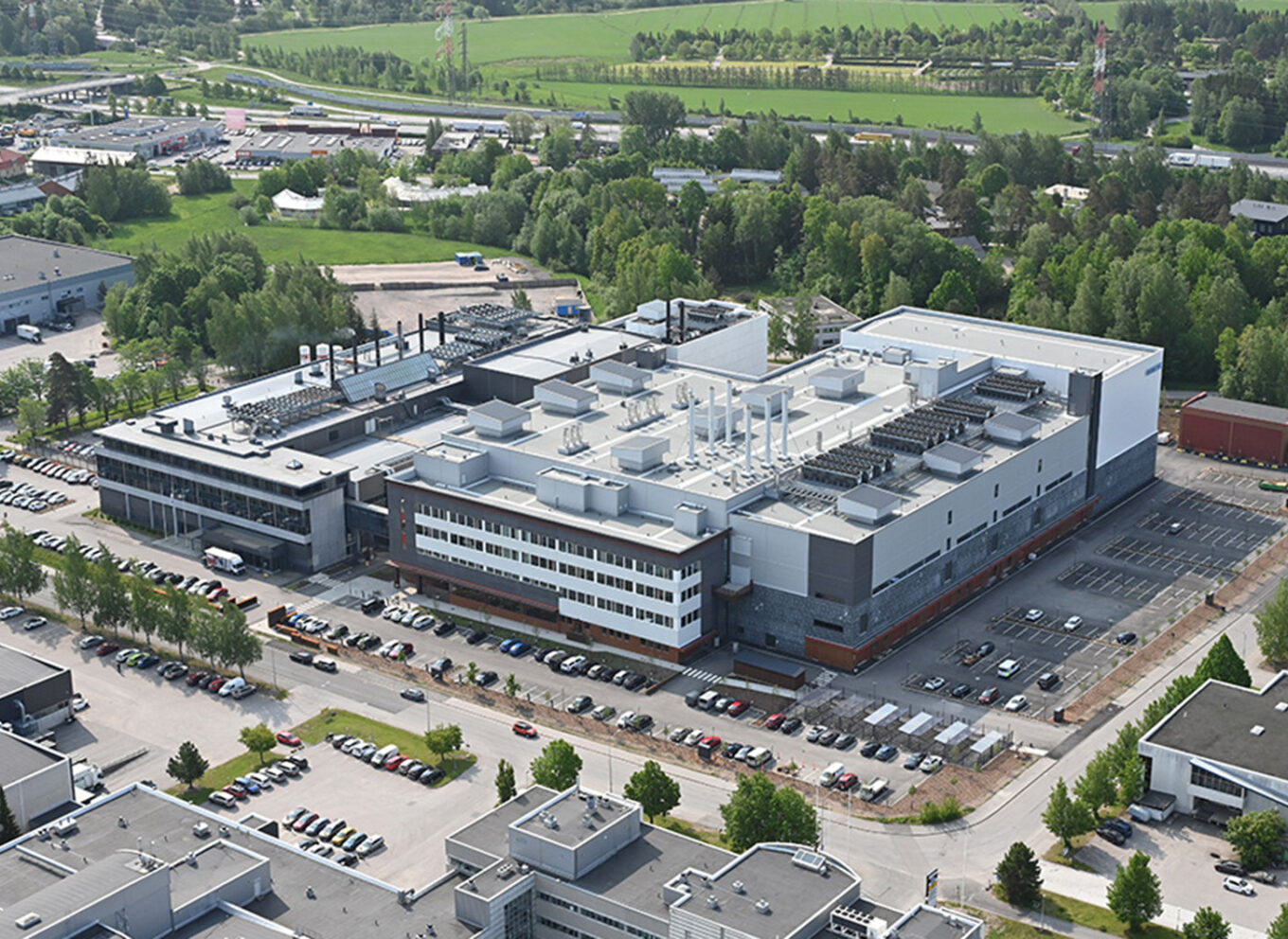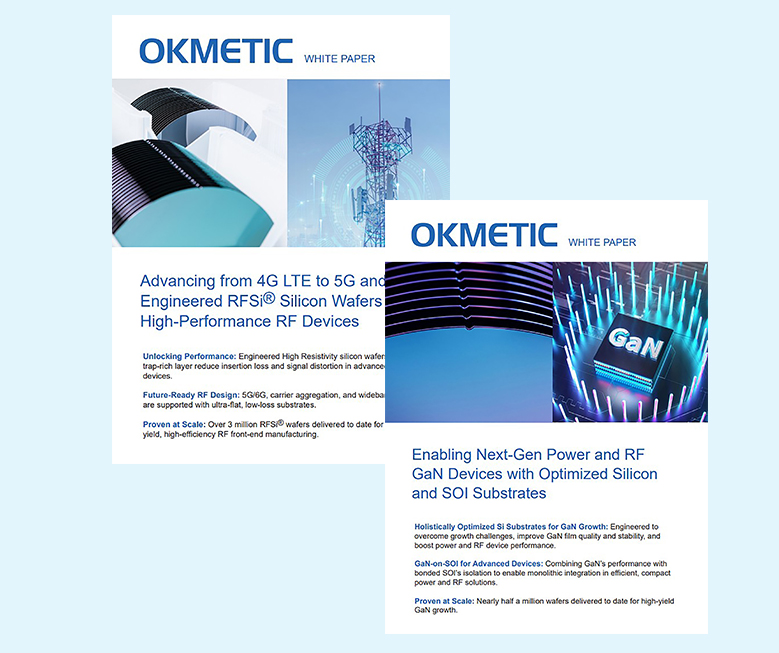
AI to enhance wafer quality and semiconductor device reliability
iRel40 project speeded Okmetic AI model creation and brought also other advances
The use of artificial intelligence is expected to surge in the semiconductor industry. Using AI in wafer manufacturing enables early detection of smaller defects, resulting in enhanced wafer quality and cost-efficiency.
The use of artificial intelligence is expected to bring significant value to the semiconductor industry, and its application in research, chip design, and manufacturing among others is anticipated to increase dramatically in the coming years. AI can also play a crucial role in predicting and optimizing inventory levels, leading to enhanced supply chain management.
Okmetic participated in the European research project Intelligent Reliability 4.0 (iRel40) from May 2020 to October 2023. The ultimate goal of the project was to improve the reliability of electronic components and systems by reducing failure rates throughout the entire value chain. The project consortium consisted of 75 partners from 13 nations, and Okmetic collaborated closely with Infineon, Elmos, Fraunhofer Research Institute, and Aalto University. The project’s main focus was on automotive industry, but many other industries were also represented.
The impact of AI on wafer production as a result of the Intelligent Reliability 4.0 project
During the iRel40 project, Okmetic’s aim was to improve the process controls of its silicon wafer production by using machine learning and artificial intelligence. AI was used to detect rare silicon wafer deviations, focusing particularly on improving the reliability of the C-SOI® and SOI wafer bonding reliability. The AI model developed by Okmetic detected the deviating wafers extremely well.
One of the main benefits of using AI is that it helps detect small deviations within extensive datasets, a task that would otherwise be challenging and time-consuming. Artificial intelligence also makes it possible to react to deviations much more quickly than before, preventing the defect wafer from proceeding in the production line, creating cost savings. AI is tireless, speeds up decision-making, boosts production efficiency, and reduces the risk of human error.
AI-based image and data processing utilized already in C-SOI® wafer production
Okmetic has integrated AI based image and data pattern processing for Surface Acoustic Microscopy (SAM) and Automated Visual Inspection (AVI) in the production of C-SOI® wafers. This enables the detection, understanding, and prediction of deviations that impact reliability during the manufacturing process and throughout the end product life cycle. Moreover, the AI model created in this project has broader applications in various tools and processes in the future.
Other key takeaways from the project
As a result of the iRel40 project, advances were made also on other frontiers. These factors will further enhance device reliability.
TSV wafers stress optimization enhancing device reliability
One of Okmetic’s achievements in the iRel40 project was the successful optimization of stress (bow/warp) of Through-Silicon Via (TSV) wafers. This important milestone enhances the yield and reliability of semiconductor devices using Okmetic TSV wafers. Okmetic’s expertise in this area helps customers to minimize stress-related issues which will ultimately lead to more dependable devices.
New knowledge on SOI wafer bonding defects enhances device reliability
Another important aspect of Okmetic’s involvement in the iRel40 project was the investigation of dummy material contamination effects on the Silicon-On-Insulator (SOI) wafer bonding process by designing & manufacturing engineered defects at the SOI bonding interface. The engineered defect wafers were thermomechanically tested at Aalto University using automotive grade thermal profile. Additionally, the defect wafers were assembled to pressure sensors at customer site to understand the correlation between interface defects and component level testing. This comprehensive approach produced new knowledge on critical defects and that ensures the reliability of SOI wafers and associated components.
MEMS hermeticity wafer level testing critical for reliability
During this project, MEMS hermeticity wafer-level testing was initiated using Okmetic low defect density C-SOI® wafers at customer site. Customer started testing Okmetic C-SOI® platform using a combination of optimized TSV wafers and C-SOI® wafers. MEMS hermeticity testing utilizing SOI wafers is critical for ensuring the reliability, performance, and long-term stability of MEMS devices, especially in applications where environmental conditions are demanding and adherence to quality standards is essential.
Future of AI within the semiconductor industry
The use of AI in the semiconductor industry is expected to bring significant changes to both technology and business. Artificial intelligence has the potential to save time, speed up production, and cut costs across the value chain, among other benefits.
AI’s economic impact on the semiconductor industry is also predicted to be substantial. According to a recent survey, AI currently contributes between 5BUSD and 8 BUSD annual earnings at semiconductor companies. The number is expected to rise 10-fold in the coming years, with the biggest profits going to capital heavy manufacturing, where costs are estimated to decrease by up to 17 percent.
A known challenge in using artificial intelligence is that it needs heavy computation, and often requires significant investments in specialized personnel, technology, and IT infrastructure.
We believe that AI-based tools are here to stay, as the increased amount of data is simply too vast for human interpretation. Our decision to stay at the forefront of AI-based tools reflects our commitment to excellent wafer and end product quality.




